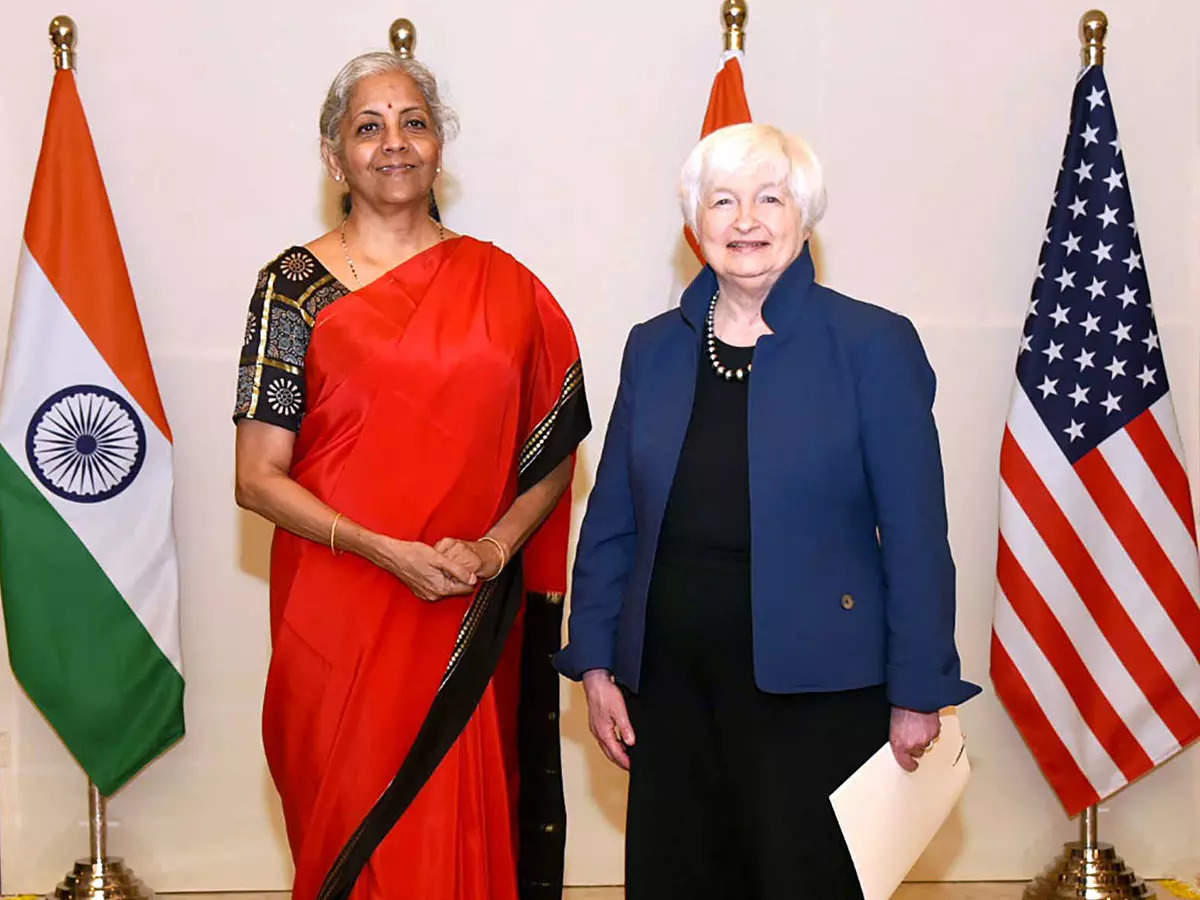12 Nov , 2022 By : Monika Singh

Finance minister Nirmala Sitharaman and US treasury secretary Janet Yellen on Friday voiced concern over the protracted bout of elevated inflation caused by external factors.
Participating in a roundtable interaction on India-US Business & Economic Opportunities with top business leaders and economists from both the countries, Sitharaman, who will be presenting the Budget for FY24 on February 1, 2023, asserted that the government will continue to pursue credible reforms and further open up the economy to realise high growth rates on a sustained basis.
Inflation in India, the minister said, is still in a “manageable range” but high global oil prices pose a challenge, as the country imports about 85% of its crude oil requirement. The government and the central bank have launched joint efforts to rein in price pressure in the economy, the minister added.
Retail inflation hit a five-month high of 7.41% in September, having remained above the upper limit of the Reserve Bank of India’s medium-term target of 2-6% for a ninth straight month. However, the US has faced much worse, which had hit a 40-year high, before easing a tad to 7.7% in October.
Flaying Russia for its war in Ukraine, Yellen, who is on her first visit to India, said, “In part, this inflation reflects the spill-over of Russia’s brutal war in Ukraine, which is boosting energy and food prices and for many emerging markets that have found themselves with high debts and high interest rates, the cost of moving higher energy and food costs are the things that have made debt unsustainable for some of them.”
Exhorting investments from US firms, Sitharaman said labour costs in India remain competitive vis-à-vis other emerging markets. “So, this is a time for concrete plans, to have transfer of certain technologies without hesitation to (opt for) joint venture partners so that you can do business without any insecurity…,” she added. India, which has pipped the UK as the fifth-largest economy, will emerge as the world’s third-largest in the next 10-15 years, she said.
According to a joint statement, talks were held between the two countries on the macroeconomic outlook, supply chain resilience, climate finance, multilateral engagement, global debt vulnerabilities, anti-money laundering and combating the financing of terrorism. They also discussed mutual collaboration in sharing of information to tackle offshore tax evasion.
‘Need for global regulatory standard to deal with crypto risks’
Yellen said there is a growing need for a high regulatory standard globally to address risks emanating from virtual assets like cryptocurrencies.
“We need a high regulatory standard globally, we need to take steps to reduce the cost of cross-border payments and we are very actively working in the context of financial stability with Financial Action Task Force and multilateral banks like IMF to really address on global basis the risks and some of the benefits from cryptocurrencies,” Yellen said.
The secretary’s statement assumes importance, as India has been pushing for a global strategy to regulate cryptocurrencies on the ground that these assets defy borders.
India’s joining of IPEF crucial
Yellen stated that India’s membership in the Indo-Pacific Economic Framework (IPEF) would make supply chains between the Asian country and the US more resilient. India had in September joined three of the four pillars of the IPEF, seen as an initiative to counter China’s aggressive policies. However, New Delhi opted out of the sensitive “trade pillar” for now, in the absence of more clarity on the nature of commitments.
Earlier in the day, both Sitharaman and Yellen held ninth US-India Economic and Financial Partnership (EFP) here, against the backdrop of global turmoil and New Delhi preparing to assume the G20 presidency from December.
0 Comment